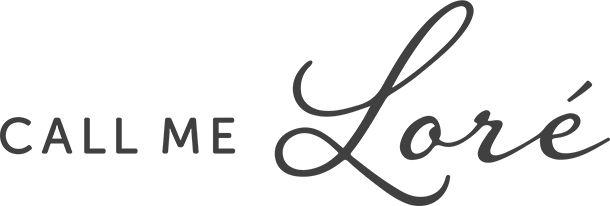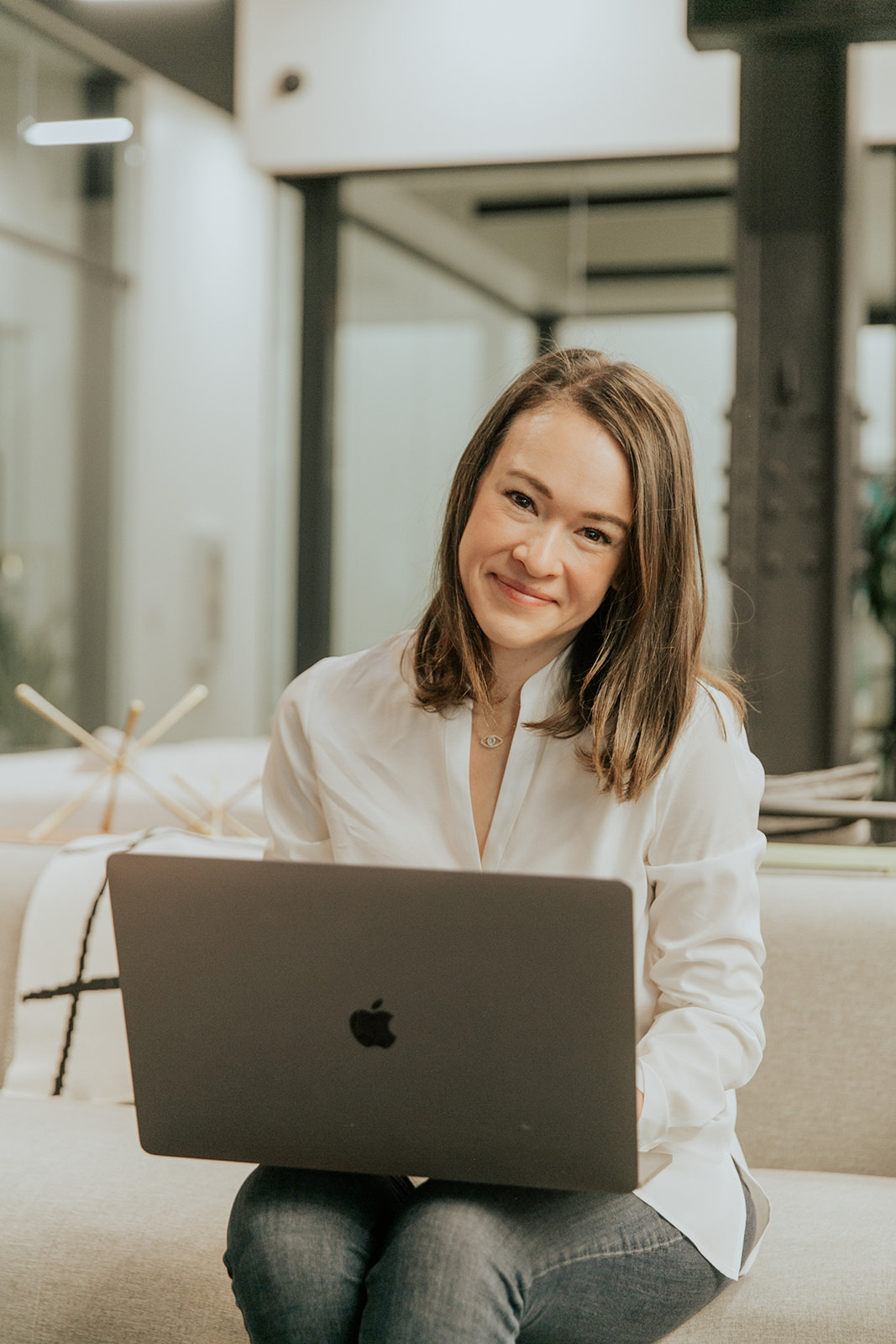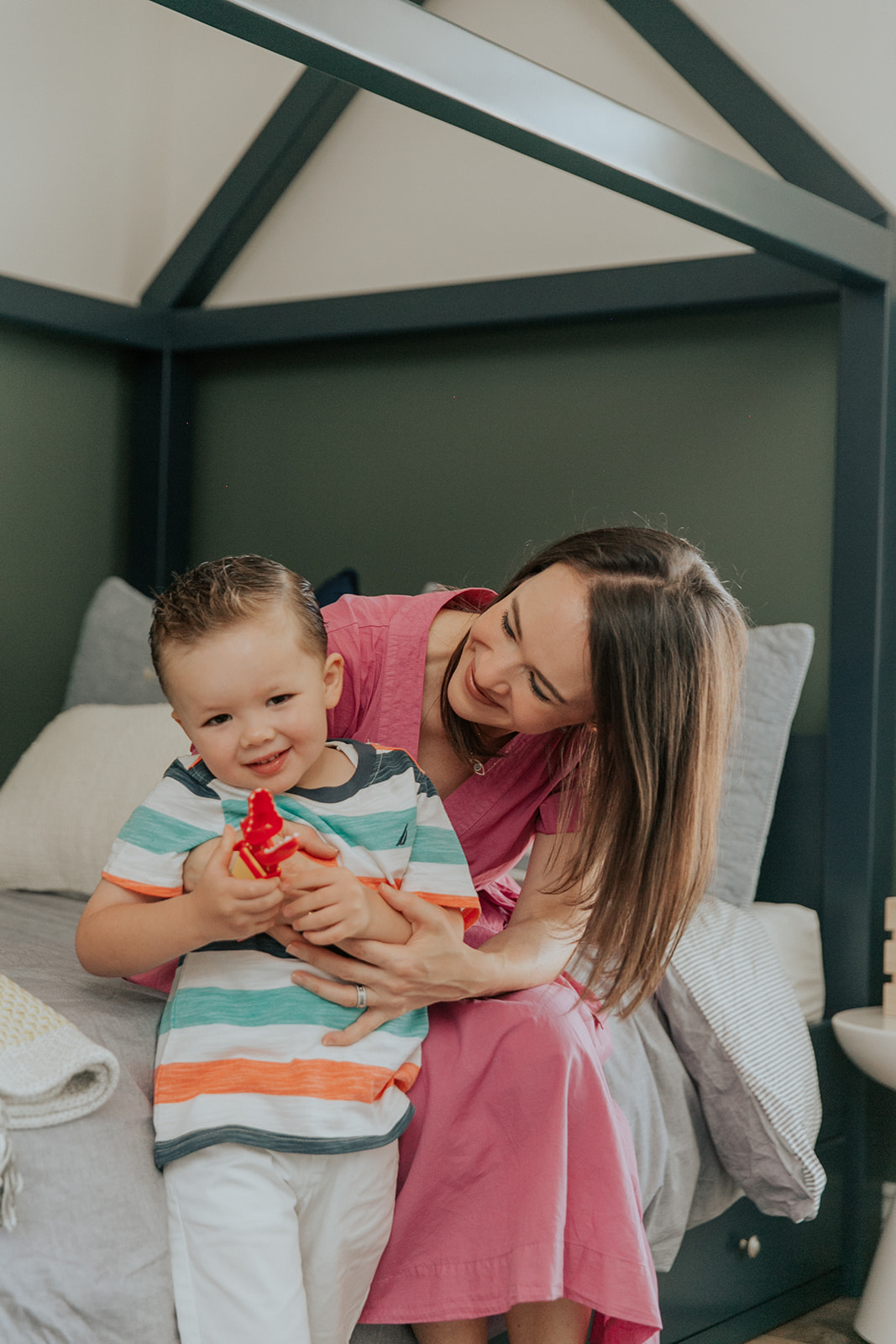
Most of us don’t think too much about a “parenting style” before having kids. We just hope that our parental or moral compass will be an instinct that kicks in. But I didn’t really have this aha moment. As a parent you have to make decisions quickly; decisions sometimes I didn’t prepare for.
I was introduced to “conscious parenting” when Diego was just under a year old or so. I figured before I get into any terrible twos and as I might leave the baby stage it might be time to do some research on what kind of parents we wanted to be.
I began reading books on conscious and mindful parenting. Now yes, it sounds redundant. Isn’t every parent conscious? Well, yes, but to not get tied up on the wording, the concept really refers to the effort of removing your emotions from the situation. An example I try to do is keep my phone out of sight when I am home from work and with my son. It is the pause I take before discipline, or any action, to check if I am acting based on emotions or temporary situations.
But, I’ll let Tamara Iglesias, the founder of Wellynest, a conscious parenting company, explain more. If you are curious about conscious parenting, keep reading!
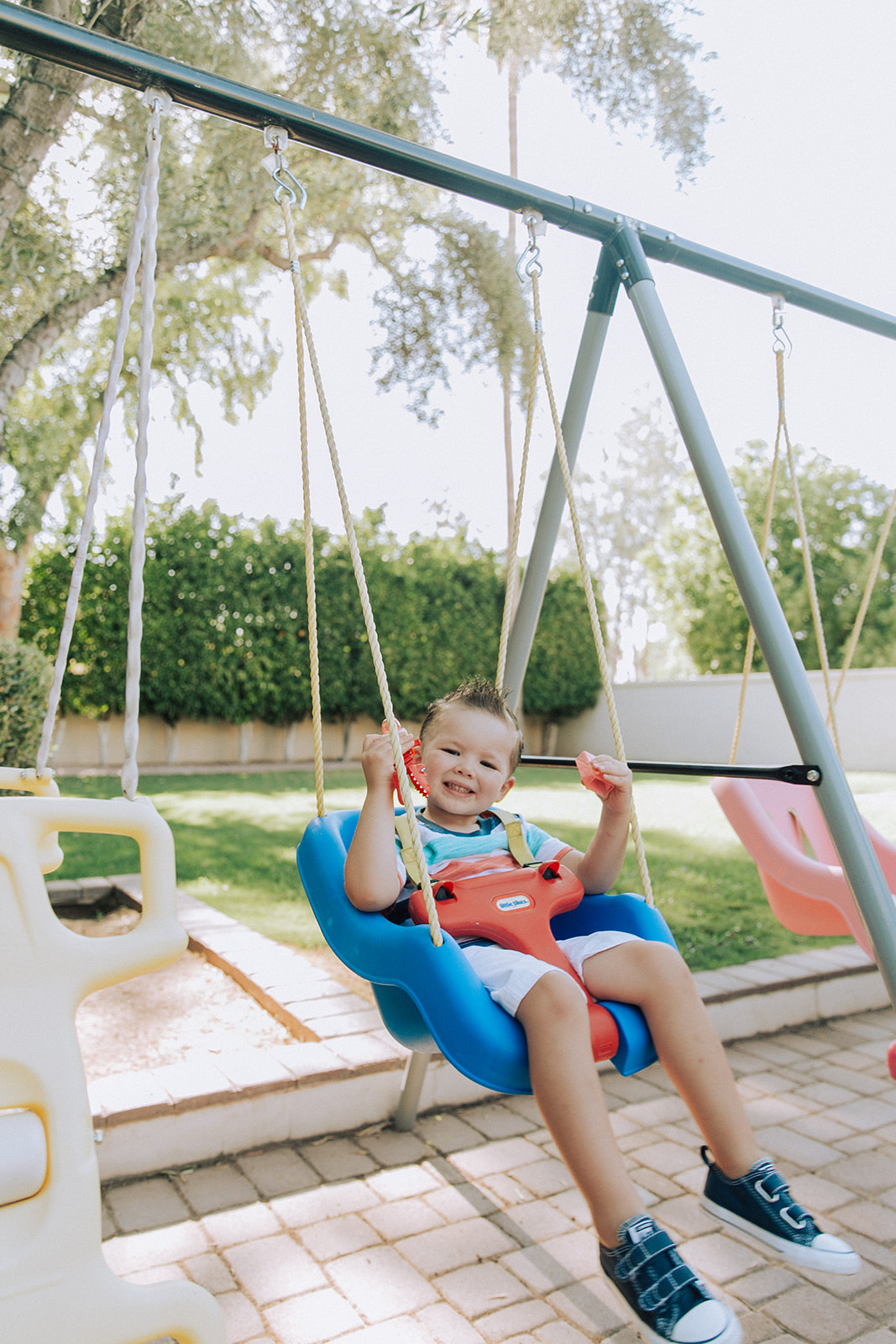
Q: What is conscious parenting?
A: “Conscious Parenting is the awareness of self in the parenting journey. It’s knowing the power of your past and how it plays a role in the relationship with your family and child. It’s understanding how your own unmet needs, past wounds or childhood traumas, limiting beliefs systems and more effect the way you respond to your child’s unwanted behavior.
Conscious Parenting is when the focus isn’t solely on the child and their behavior, but when the parent owns what they bring to the relationship and is willing to look at it, become aware, and begin the healing journey.”
Q: What is the difference between conscious parenting and other parenting styles?
A: “Typically unconscious parenting styles will focus 100% on the child, their unwanted behavior and how to stop, limit or remove that behavior, verse getting to the root cause of it, or seeing how you as the parent are playing a role in your child’s behavior. Unconscious parenting often uses guilt, shame, or manipulation and discipline to get to their desired behavior or outcome, having the child conform to their expectations. Conscious Parenting shifts the focus more to the parent; how are they being triggered by their child’s behavior, what can they as the parent shift or heal first. Do you as a parent have an unmet need, are you stressed, not taking care of you, can you address that first?”
“Then looking at what is causing your child’s behavior and trying to address their unmet need or get to the feeling at the root of the behavior. I believe conscious parenting cultivates respect verse demands, it builds trust verse breaks it, it brings clarity, consistency and consciousness to communication, verse dumbing things down for children and the list goes on. Conscious parenting has clearly defined limits and boundaries that make children feel safe, and true freedom of expression that allows a child to feel heard, seen and ultimately whole.”
Q: What does discipline look like in conscious parenting?
A: “Discipline in Conscious Parenting looks like having a set of clearly communicated limits and boundaries, fair family rules, and healthy personal boundaries for all parents and caregivers that are developed with the entire family in mind. When the family agrees upon these limits and boundaries they are then consistent and the parents and caregivers build trust by meaning what they say and following through on all family rules, limits and boundaries.”
“Children then know what to expect and it’s easy to live within the home and flow that the parents design with the child’s best interest in mind to allow for safety as well as creating space for as much independence and freedom possible for the children.”
Q: Tips to become a conscious parent?
A: “I think the first part in stepping onto the Conscious Parenting journey is realizing we all come with past pain, childhood trauma, suffering, limiting beliefs or whatever it is. Accepting that you aren’t perfect and not holding yourself to that standard is number one. We are all human, with imperfections, flaws, and weaknesses. However, accepting that you are open and willing to heal and evolve for you and your children is the first step. Being willing to be open to awareness, to accept your role in a situation with your child, to slow down and breathe and try to see the patterns that you are possibly playing out in your relationship with your child.”
“Sometimes just knowing you are being triggered, or knowing that it actually something you can fix or change and has nothing to do with your child is the first step to breaking these old unhealthy coping mechanisms or past pains. Support is also such an incredible tool, finding a community of other conscious parents, finding a local workshop, to start to see that there are other ways to raise your children, other ways to view them, other ways to honor them. It’s about about being open, asking questions, be willing to break these patterns passed down from generation to generation and do the work to heal yourself so you can heal your children.”
Q: If you did not start with this theory of parenting from the beginning can you start when your kids are older?
A: “I always say it’s never too late and it’s never too early. Conscious parenting in a perfect world would be a preconception journey and healing process, and it’s also never too late to begin to heal and change. I’ve worked with parents with 19 and 21 year old daughters. When you heal, the healing goes up and down the line, so up to your mothers and grandmothers and down to your children. It’s never too late to heal a relationship, to change the way you communicate, to listen and honor your child’s feelings, to build trust, cultivate respect, to show your child you’ve got your back. “
“Forgiveness is an amazing journey to acceptance and I believe so many are wanting and willing to forgive because when you start to understand this deep work, you begin to see that everyone is doing the best they have with what they have and as they learn, heal, evolve, then this journey of conscious parenting and family healing reaches new levels of growth and transformation. “
Q: For anyone that wants to know more and get started with conscious parenting what would you recommend?
A: “I would listen to conscious parenting coaching live to get an understanding of what it’s ultimately all about. I have tons of podcasts on my website for free listening and support, I also have lots of free content on my instagram page @wellynest. If you can find a local conscious parenting workshop I recommend that, however, there are many different philosophies even around conscious parenting.”
“I offer a virtual group coaching course for parents which is an incredible 8 week journey into this conscious parenting world and addresses’ the parents healing journey as well as building all the tools, and conscious parenting language alternatives that give you new resources to use with your children to bring this work into your family’s life now.”
Q: What to do to get started and good resources to get informed.
“I would check out www.wellynest.com there is everything on there from;
I would also recommend the books No Bad Child by Janet Lansbury and The Whole Brain Child by Dan Siegal.”
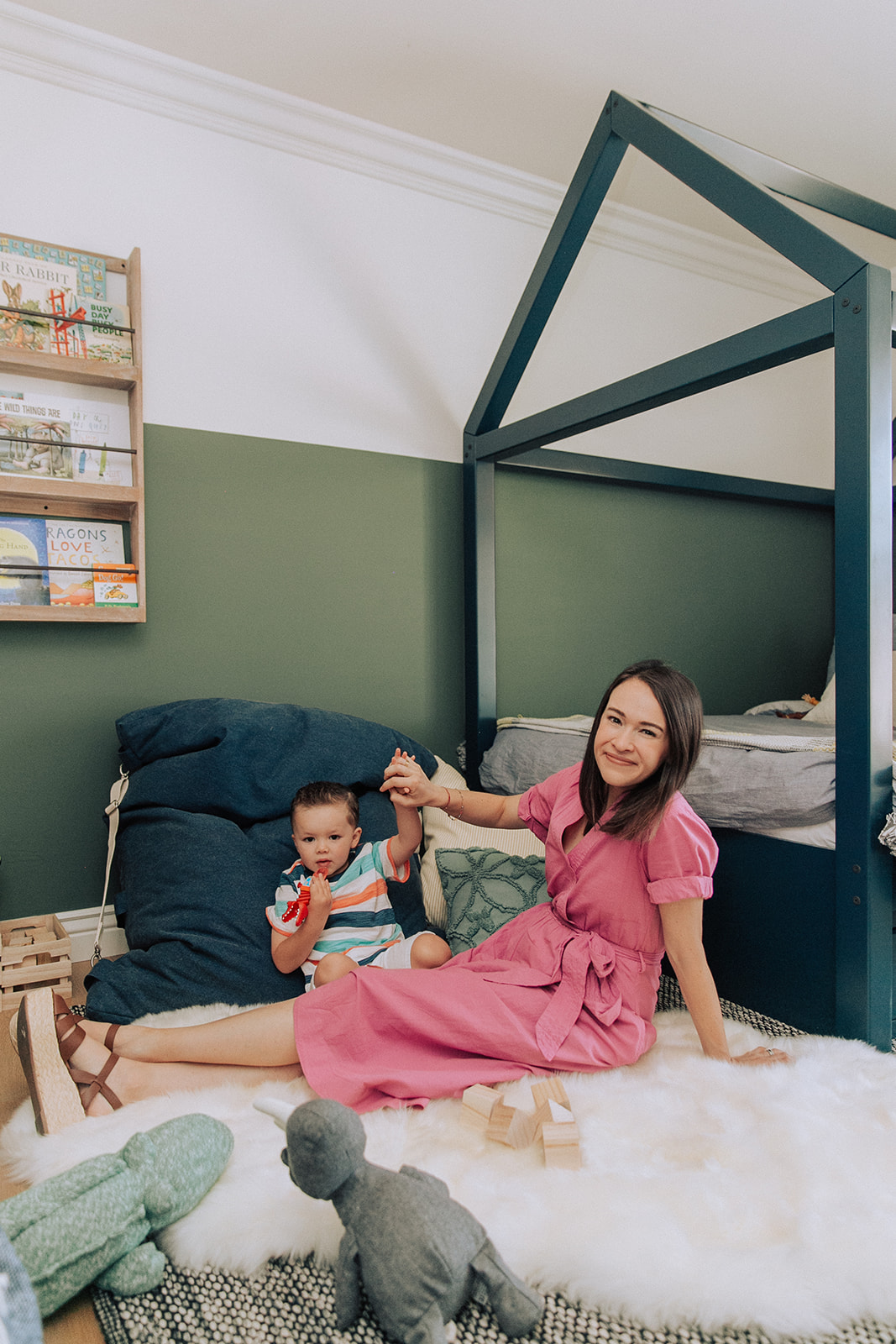
Hopefully this helped out those of you who are interested in different types of parenting or who were just curious about what conscious parenting is. If you want to check out The Whole Brain Child, I actually have a post all about my experience with reading it. Check it out here!
Feel free to reach out to Tamara if you have any other questions. Let me know in the comments if you’re interested in conscious parenting! #callmelore
